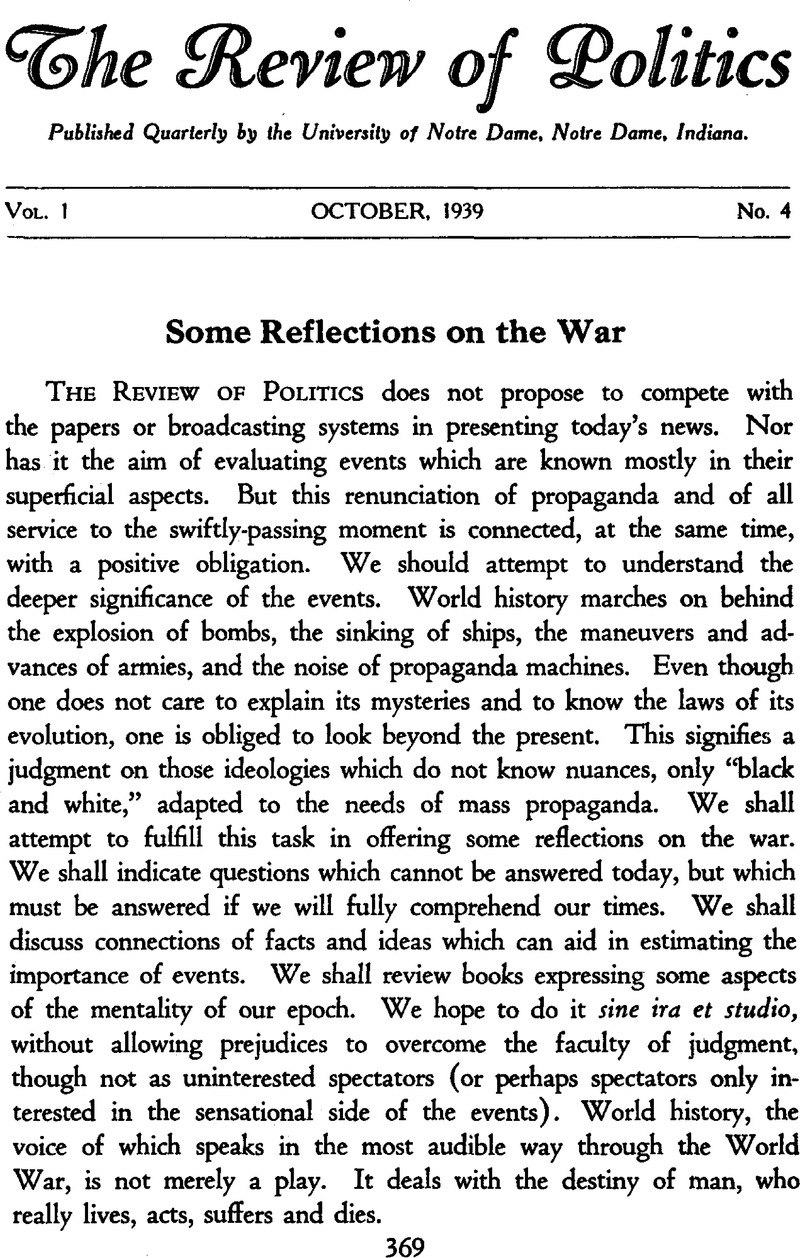No CrossRef data available.
Published online by Cambridge University Press: 05 August 2009

1 Columbia University Press, New York, 1939, ix, 67 pp., $1.00. The text of this edition follows that of the first English edition published in London in 1796.
2 We quote Hegel's Philosophy of Right, translated by Dyde, S. W., London, 1896, p. 338Google Scholar.
3 We do not know why the word besondere is not translated here by the word particular. Hegel has the particular sovereign will of states in mind. As a German text, the edition of Lasson, Leipzig, 1911, was used.
4 How this situation changed during the first World War is universally known. For the striking case of enemy property in war-lime one may refer to the article of Littauer, R. in War in Our Time, published by the Graduate Faculty of the New School for Social Research, W. W. Norton & Co., New York, 1939, p. 278Google Scholar. Certain rules limiting warfare may be observed, but only for technical reasons. For instance, the distinction between uniformed military forces and the civil population is useful for military purposes, especially for the conqueror.
5 Compare Clausewitz, , On War, English edition, Vol. 3, London, 1911, pp. 79 ff.Google Scholar Clausewitz knew, naturally, that absolute war was realized in the French Revolution, with its popular armies. We do not know if the criticism of Clausewitz by General Ludendorff, The Nation at War, is justified on all points. It may be that Clausewitz did not deal enough with economic planning, but he knew exactly the importance of the national basis and popular enthusiasm for the absolute war.
6 Cf. his article in the book Krieg und Krieger, Berlin, 1930,Google Scholar entitled “Die totale Mobilmachung” (Totalitarian Mobilization). Cf. also the article of Hans Barth in the July Review of Politics.
7 Totalitarian war is aimed not only at the destruction of armies, but is a test of the stability of the entire social, political and economic system. The revolution is nothing more than a proof that this system could not bear the tension and thus explodes.
8 Quoted from Vagts', AlfredHistory of Militarism, W. W. Norton Co., New York, 1937, p. 464Google Scholar.
9 We recommend the edition published by Reynal & Hitchcock, New York. The annotations are very useful, though one might have wished they had a more systematic character and had been more clearly connected with the text. One cannot understand why the index was omitted.
10 Rauschning was President of the Danzig Socialistic Senate from 1933–34. His work has just been published by the Alliance Book Company, New York, $3.00.